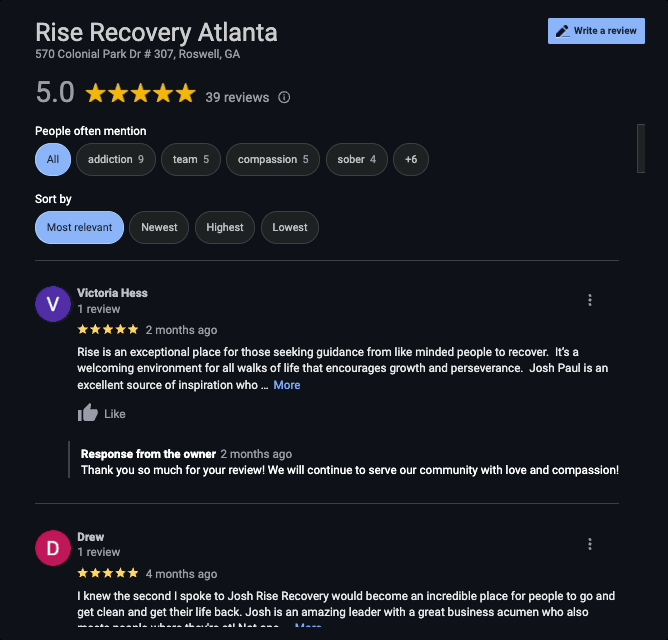Healing Pathways: Therapeutic Modalities at RISE Recovery Atlanta
At RISE Recovery Atlanta, we believe that lasting recovery and mental wellness require a comprehensive, personalized approach. That’s why we offer a diverse range of therapeutic modalities designed to support individuals on their journey to healing. From evidence-based practices like Cognitive Behavioral Therapy (CBT) and Dialectical Behavior Therapy (DBT) to holistic strategies such as yoga, meditation, and nutrition, our programs address the mind, body, and spirit. We also provide essential education on family dynamics, medication, and psychodrama to ensure a well-rounded path to recovery.
No matter where you are in your journey, our integrated therapeutic strategies empower you to build a healthier, more fulfilling life.
CBT
DBT
Nutrition
Family Education
Meditation
Psychodrama
Yoga
Medication Education
Services Provided
Partial Hospitalization
The partial hospitalization program (PHP) level of care assists persons in returning to regular life. This level of care is often provided following the completion of stabilization at a detox or residential program. Individuals will receive five days of clinical programming, Monday through Friday, for five hours each.
Intensive Outpatient
The intensive outpatient program (IOP) level of therapy offers the structure and knowledge required for individuals to succeed in an independent setting. This level of care is often administered following a PHP. Individuals at the IOP level of care will receive three hours of clinical programming each day, three to five days a week, Monday through Friday.
Outpatient
The outpatient program (OP) level of care provides ongoing support as clients proceed to a self-directed program. Individuals at this level of care receive clinical programming twice a week: one day of one-hour individual therapy and one day of group counseling. Outpatient is available Monday through Friday.


